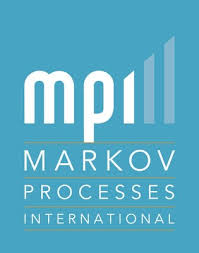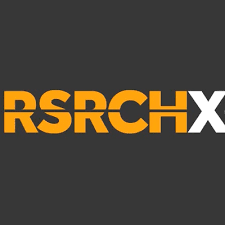In other FinTech news, the CFTC bends a rule concerning customers and their euro cash investments, Markov Processes International (MPI) has an update, and Research Exchange adds an outreach to analysts.
 IBM and CLS to Work on DLT Proof-of-Concept Effort
IBM and CLS to Work on DLT Proof-of-Concept Effort
Computing giant IBM is collaborating with CLS, a market infrastructure group delivering settlement, processing, and data solutions, on a proof of concept (PoC) effort for LedgerConnect, described as a distributed ledger technology (DLT) platform for the financial services industry.
The LedgerConnect offering to come is intended to help banks, buy- and sell-side firms, fintech vendors and other providers “deploy, share and consume services hosted on a shared distributed ledger network,” officials say.
The forthcoming managed platform will “provide access to DLT-based services for financial processes on a single, secured network,” officials say. Barclays and Citi are among the nine financial institutions taking part in the initiative.
The nine financial services firms participating in the PoC “have selected services from a number of vendors including Baton Systems, Calypso, Copp Clark, IBM, MPhasis, OpenRisk, SynSwap and Persistent Systems,” officials say. “As financial institutions increasingly work to implement DLT into their operations, capital markets remain saturated with multiple systems performing the same business functions and with siloed pockets of data that require expensive reconciliation processes. DLT can help reduce these inefficiencies and improve the speed of doing business by providing a single, shared version of events and one implementation of common business functions.”
The LedgerConnect offering will “access services in areas such as, but not limited to, know your customer processes, sanctions screening, collateral management, derivatives post-trade processing and reconciliation and market data,” officials say. “By hosting these services on a single, enterprise-grade network, organizations can focus on business objectives rather than application development, enabling them to realize operational efficiencies and cost savings across asset classes.”
LedgerConnect is being pitched as an alternative to “cost prohibitive and time-consuming” DLT infrastructure that firms would develop on their own. “LedgerConnect aims to solve this problem by providing a single shared and highly secured network on which multiple services can be deployed and consumed. This allows financial institutions to focus on transforming business processes rather than creating multiple new blockchain applications, networks and services in silos that could lead to increased interoperability costs and complexity.”
LedgerConnect will target regulated and security-conscious enterprises engaged in cross-asset transactions, officials say. The offering will operate via a private permissioned network based on the IBM Blockchain Platform and Hyperledger Fabric technology.
“Support for additional ledger technologies may be provided in the future, based on market demand and developments,” officials add. “On completion of a successful PoC, generation of market demand, and receipt of all necessary regulatory approvals, CLS and IBM plan to make the platform widely available to the industry.”
 CFTC: DCOs Can Invest Euro Cash in French, German Sovereign Debt
CFTC: DCOs Can Invest Euro Cash in French, German Sovereign Debt
The Commodity Futures Trading Commission (CFTC) reports that it has unanimously approved an order that allows registered derivatives clearing organizations (DCOs) to invest customer euro cash in French and German sovereign debt.
“Allowing DCOs to invest customer euro cash in high-quality European sovereign debt poses less risk than the current practice of holding customer euro cash at commercial banks,” the CFTC says in a statement.
The CFTC points out that it has “granted this exemption on the basis that French and German debt have credit, liquidity, and volatility characteristics that are comparable to currently permitted investments in U.S. Government Securities, and adequately preserve principal and maintain the liquidity of customer funds.”
“With these expanded investment options, DCOs can manage their risks more effectively, while better protecting customer funds,” Brian Bussey, the commission’s division of clearing and risk director, says in a statement.
 MPI Adds Risk Functions to Stylus Pro Fund Analysis Software
MPI Adds Risk Functions to Stylus Pro Fund Analysis Software
Summit, N.J.-based Markov Processes International (MPI), a provider of investment research, technology, analytics and indices for the investment management industry, reports the release of Stylus Pro 11.4, the most recent version of its flagship investment analytics software.
The new release adds the ability to “perform historical regime analysis and stress testing, as well as hypothetical scenario analysis, or ‘what-if’ shocks, on investment products and portfolios, MPI notes, adding that it “also introduces proxy-handling capabilities that enable users to extend analysis for shorter-lived funds.”
The new analytics software is “focused on meeting the needs of its core clients”; namely, “fund selectors and fund sellers,” the firm says.
“Historical stress tests enable users to analyze fund performance during specific market events, like the credit crisis or dot-com crash,” MPI points out, adding that its scenario analysis “enables users to perform theoretical shocks to a fund or portfolio to identify potential risks in hypothetical market conditions.”
“While past performance is never a guarantee of future results, there are significant insights to be gleaned from analyzing a fund’s potential behavior during certain market and economic conditions or historical events,” Michael Markov, MPI’s co-founder and CEO, says in a statement.
 RSRCHXchange Creates Analyst Links for Research Marketplace
RSRCHXchange Creates Analyst Links for Research Marketplace
RSRCHXchange, a London, England-based fintech company more formally known as Research Exchange Ltd, reports that it has added analyst interaction functionality to its research marketplace.
“Buy-side users will now be able to schedule, book and buy meetings, calls and webinars with analysts from among the 375 banks, brokers and independents currently using the firm’s platform,” the institutional research aggregator says in a statement.
Research Exchange also notes that it will “provide both sides with the necessary consumption audit trail and feature all the compliance and control functionality that users and providers have come to expect.”
“The findings of our recent survey have shown that 63 percent of buy-side firms are taking fewer meetings post MiFID II and that this is partly down to confusion over pricing,” Vicky Sanders, RSRCHXchange’s co-founder, says in a statement.
Need a Reprint?